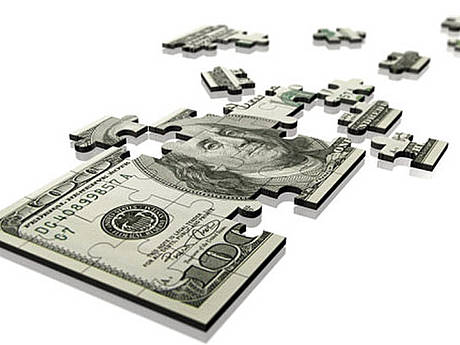
It is important that members of government now, and during the U.S.-Ukrainian Investment Forum, held talks with creditors on restructuring Ukrainian foreign debt and urged them to accept the proposal for an extension of its maturity, a haircut, and a reduction in interest payments. However, such efforts might become more intensive, as it is evident that Ukraine must save $15 billion, or the questions of economic stabilization and transition to future growth become very problematic.
This is according to President of the Ukrainian League of Industrialists and Entrepreneurs Anatoliy Kinakh. "The country's overall debt has skyrocketed to UAH 1.400 trillion, including in hryvnia and in foreign currency. And though in the past 1.5 years, the country repaid part of its debt, having reduced the total amount by $5.5 billion, restructuring should be carried out more actively. The situation in Ukraine is very complicated, as the never-ending social and economic crisis with recession lasting for 37 months has overlapped with the illegal annexation of Crimea, and military aggression in the east. Of extreme need are funds for economic recovery, investment in modernization, introduction of advanced technologies and implementation of a brand new export policy, and adaptation to EU standards pending the launch of free trade with Europe is needed. Therefore, changing the conditions of the debt as far as a reduction in this debt is a top priority nowadays," Anatoliy Kinakh said.
As he put it, in 2001-2002 when he headed the government, convincing arguments for the Paris Club creditors were found, and Ukraine's debts were re-profiled and reduced. A very important factor today is support from the IMF and other international financial institutions, their attention to the specific economic situation in Ukraine, the willingness to disburse further tranches, is a good sign for international investors. But, Kinakh claims that restructuring the debt is not a panacea for all diseases. New loans and new borrowings to pay old debts is the wrong way.
"International financial resources should be aimed, among other things, at supporting the economy and its transition to sustainable growth. The pace of economic reform, a new level of the state machine, the fight against corruption, favorable conditions for businesses, changes in legislation in accordance with international standards, well-considered sectoral government programs to support the industry, which are oriented towards national priorities, are the components of anti-crisis work and are conducive to an economic success," he said. Kinakh insists on the need to consolidate the efforts of the government and businesses to overcome the crisis, establishing a civilized partnership dialogue between them for one and only purpose – the social and economic recovery of the country.